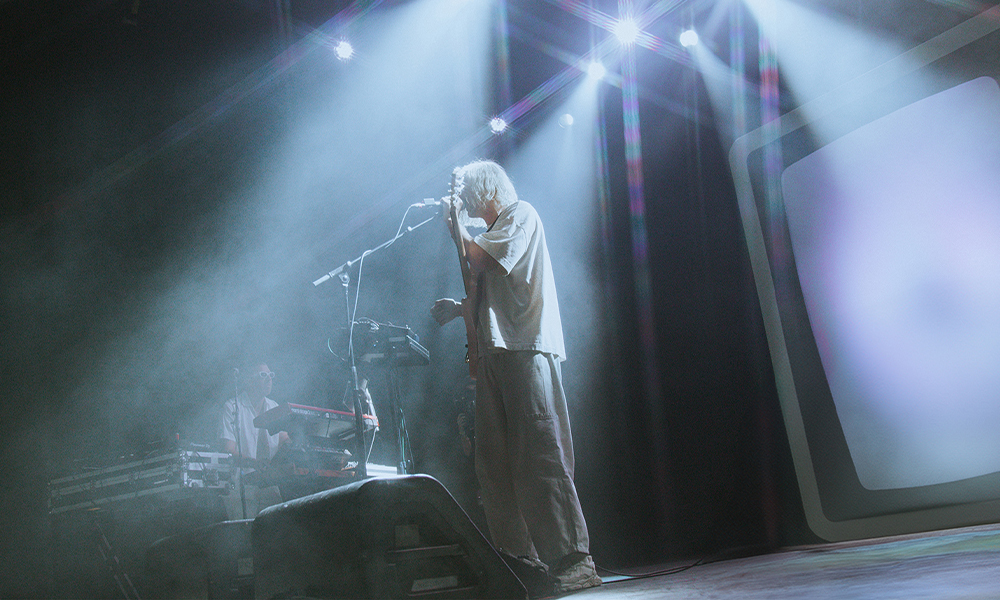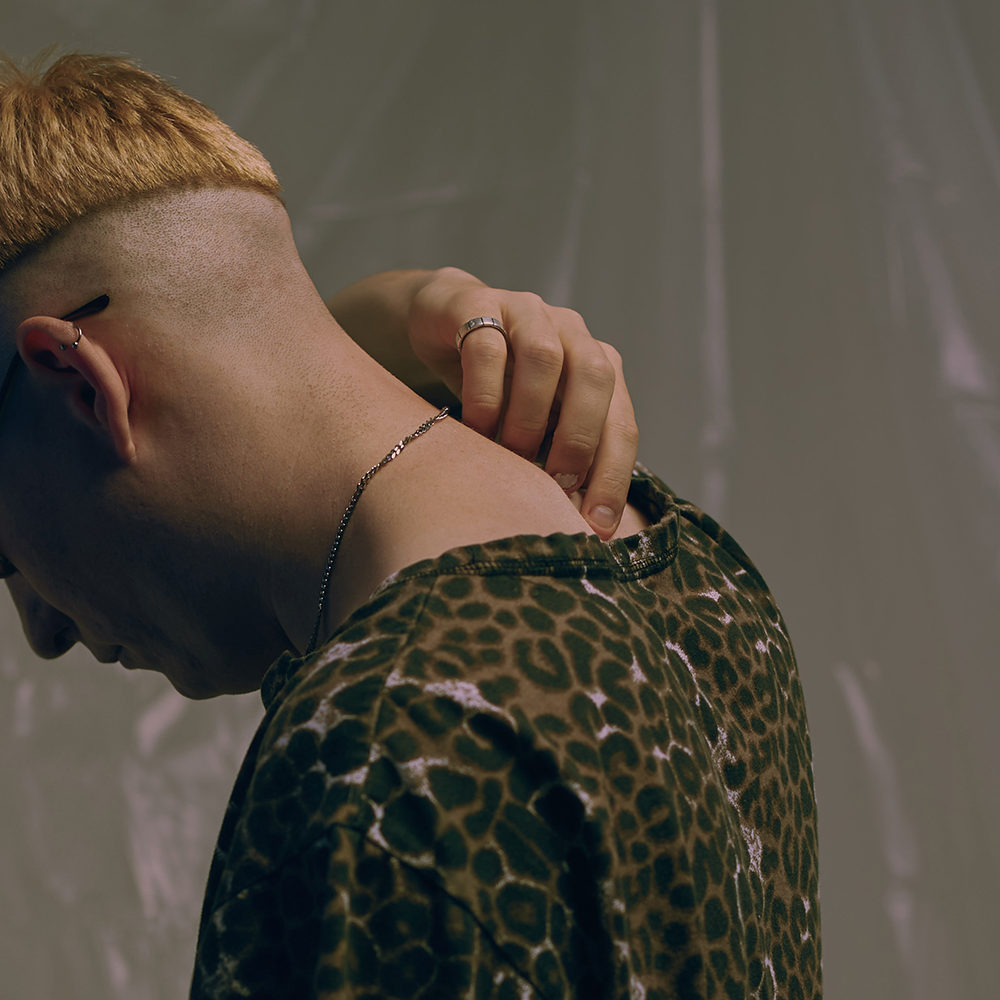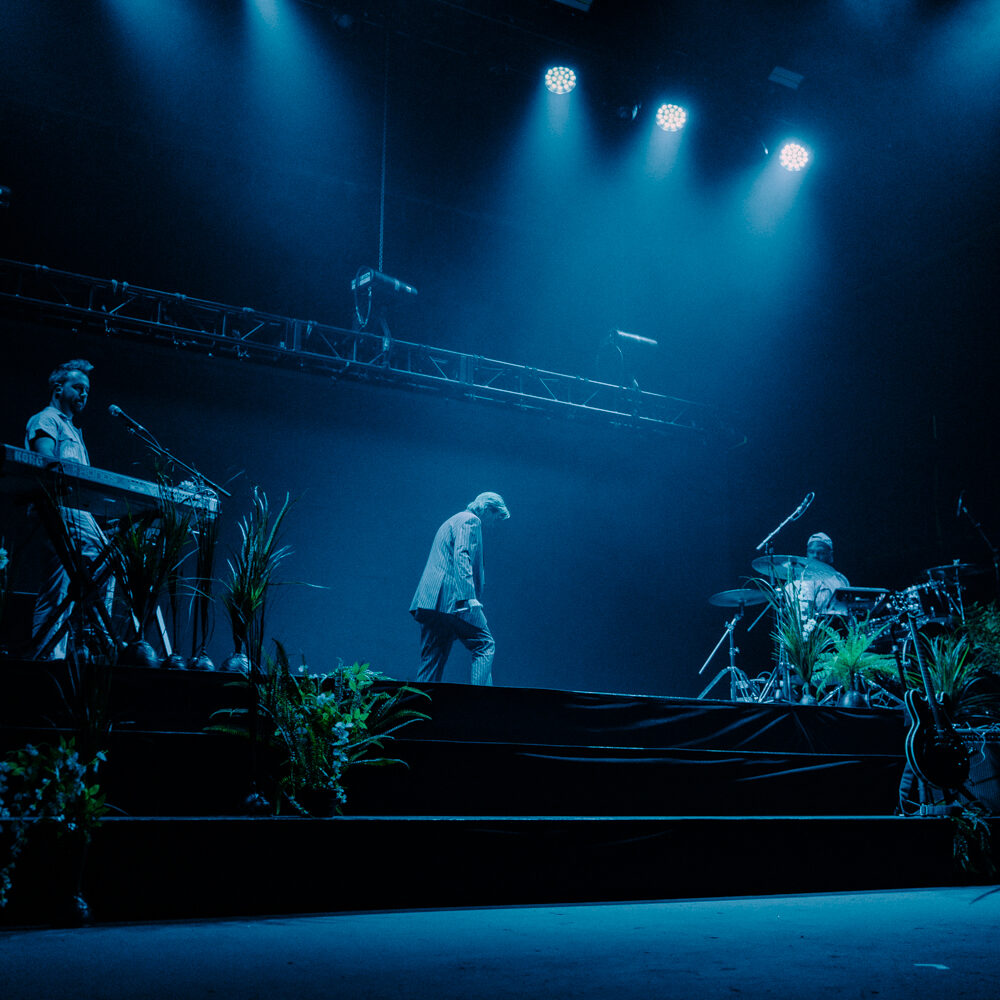Juggling the roles of songwriter, singer, instrumentalist, and producer might be too much for some people, but for John Chao, the brainchild behind the musical group Misha (JC), the different aspects of creating music are all just a part of one addicting process. Misha’s latest project, All We Will Become (the first album released by the band in eight years) was released at the end of May and its track list consists of one complicated, beautiful, dance-along-anthem after another. We took the time to chat with John about the album, the history of the band, and his own personal inspirations/aspirations (and celebrity crush list). It only took us one listen to get hooked, and we trust other music junkies won’t take long to join in.
Tell me about your background! Where did you grow up? What was your childhood like?
JC – I grew up in a big, noisy extended family with my cousins and grandparents too, and we moved quite a bit, first in Hong Kong, then Taiwan, and then the States (California and Texas)— and in between, bits in Europe. What I remember most is the feeling of discover— shopping in the hawker markets with my grandmother in Hong Kong, or living in the mountains outside Taipei, where we had wild chickens and peacocks, and then the experience of finding everything was so much bigger, from the houses to cars and food, in the States. I think moving so much had a big impact, there were always new languages being spoken, new traditions— and being exposed to so many new cultures, you learn to see how lovely the idiosyncrasies of each culture are— and also what͛s shared across all cultures.
When did you first become interested in making music?
JC – My entire family played music growing up— I started with violin when I was three, and my siblings played everything from piano to erhu (Chinese string) and for a mercifully brief period of time, the snare drum. On top of that, my mom and dad loved music— so we always had something on the radio, from Joan Baez to Chinese pop music. This is kind of embarrassing, but I got interested in making music from been really bad at practicing— and discovering that it was more fun to make things up, which gradually took over my lessons until I was learning more about composition than violin playing. And at the same time, growing up in Texas meant being exposed to an amazingly diverse musical environment, everything from blues to Norteno to country and hip-hop— and one of the ways I made new friends was playing together. So I started out playing fiddle, then picked up my mom’s guitar, and then from to the lap steel, which is a kind of slide guitar, to accordion, and so on.
You work as a songwriter, singer, instrumentalist, and producer for your records. How do you juggle all those creative outlets? How do they work together?
JC – It might sound strange, but they’re really not separate outlets to me, but different stages of getting an idea to a song that you can share with other people. I think technology has made it easier to put these pieces together— if you look at super talented producer/artists like Blood Orange or Diplo. And I think part of the appeal is that it can be really liberating to wear these hats, because you stop seeing a guitar as just an instrument and a melody as an idea— but everything becomes something you use to create a song. Because I started out playing instruments, I’m not primarily an electronic musician, and almost everything on the album is played and arranged IRL. For All We Will Become it was really important for me to respect and preserve the spirit and the tradition I’m drawing from— like the New Orleans brass in “Elater” or the strings in “In Reverse”. Because a big part of what I wanted to do was share the feeling of being in that world and place.

You mentioned on your website that you are inspired by a wide range of different genres and cultures. What would you say is inspiring you currently?
JC – This is the curse of Spotify— there’s just so much amazing music out now! I randomly pulled from my recently played Spotify list, and here we go:
1.) Sulkhan Tsintsadze, whose is a Georgian composer from the 40’s, who wrote these classical miniatures that are wild and strange and beautiful, like whirling, dancing figures. I’m kind of obsessed with the idea of familiar and unfamiliar together, and he͛s a great example of that.
2.) R. D. Burman, who was the king of 60’s-70’s Bollywood pop songs, particularly written for film. He wrote some of the most beautiful melodies I’ve ever heard— bittersweet and surprising, even if you don’t speak the language.
3.) The new PJ Harvey— I am so amazed and inspired by her. The last two albums have this combination of righteousness and lament and almost gospel-like feel to them. Of witnessing. It’s really gorgeous and ineffable.
4.) Young Fathers— just so good. I love this experimental but grounded feeling— it’s like this continuation of Anti-Pop and Shabazz Palace evolution of wonderfully strange experimental hiphop/electronic
5.) Justin Bieber/Ariana Grande/Selena Gomez/Zayn— I love this sound— it’s minimal, almost avantgarde, big, pop and sweet. I think Kanye kicked this off a bit with 808, and then Beyoncé with her work with Boots, but “mainstream” pop is getting weirder and awesome all the time. “All We Will Become” tries to marry pop melodies with this notion of unexpectedness— and I hope people who love Bieber can listen to some of it and love it— and people who love Bjork can also listen and love it, because there͛s that common thread of pop.
How would you describe your upcoming album, All We Will Become? What are some of the stories that inspired the songs?
JC – I guess I would describe All We Will Become as a pop album that draws on unexpected sounds— from classical to drum corps and brass bands— to create something that’s familiar and unfamiliar at the same time. It’s 12 songs that tell a story about relationships from beginning to end— and each song expresses the feeling of love at a different stage and with different sounds. As you can probably tell, I’m really not great at explaining it! At its core, it’s unabashedly pop— hopefully with melodies you can sing— and that surprises at the same time.
Who are some of your favorite musicians?
JC – My favorite musicians are artists who write beautiful, brave songs or create their own worlds: in the former camp, songwriters like Lennon/McCartney, Neil Finn, Richard Thompson, Joni Mitchell, Caetano Veloso, and Lyle Lovett, artists whose works you can play on a guitar and they still work. And in the latter camp, artists like Kate Bush, Bjork, Astor Piazzolla, PJ Harvey, and Curtis Mayfield, who created their own universes that you can get lost in. I feel like there are artists now who do that too— Frank Ocean, for example. Channel Orange for me is killer and heartbreakingly beautiful.
In all your travels, what cities and cultures would you say appreciate music the most? What differences have you seen in the way people make and listen to music?
JC – I kind of feel like this is like asking parents which kid they like best. (They’re all so interesting!) And I really think almost every culture has multiple amazing musical traditions that you can get lost in, whether it͛s Gamelan or fado. In terms of appreciating, I feel totally under-qualified to answer this, but of the cultures and places I’ve visited, I feel like India and Brazil are definitely two where music and life are really integrated, and there’s this seemingly genetic familiarity and comfort with rhythm and melody from almost everyone you meet. In terms of differences in how people make and listen to music, maybe it’s that some cultures intertwine music and rhythm and life very closely, and others have developed very distinct music traditions where you are “doing” or “listening to” music. And one’s not better than the other, just really different. Similarly, I feel like there are cultures where harmony is really complex and beautiful— like bossa nova, for example— and others where I’m drawn to the rhythm in particular, Afro-Cuban, for example, or Indian classical. What I’m most excited by right now is learning about the rock scene in Beijing and all the new bands and new sounds that are coming out. That and Babymetal. SO AWESOME.
What song on this new album was the hardest to write? What song was the easiest?
JC – I think the hardest song to write was probably “Optical Illusion of the Heart”— it’s one of the more dance-y songs on the album, and I had this rhythm in my head and this little verse— and kind of like a character in a novel, I let it wander and ended up with a Texas drum corp in the beginning, a punk-y middle, and a Brazilian drumline at the end— and in between, we got lost for a little bit. I just couldn’t hear a chorus that connected everything for a month— and every day I’d go out for a run and hum the verses and wait for the chorus to show up. It was pretty miserable until an idea worked— and even now, I’m kind of cautiously optimistic about the song. The easiest was probably “Everything and Everywhere”, which I wrote after my sister gave birth to my nephew— and it’s a song about caring for someone— whether parent or lover— and how when you deeply care for someone, there’s an unyielding care for them. I think that was fully written in a few hours.
Do you have any funny songwriting or on-the-road anecdotes you could share?
JC – I don’t know if this is funny haha or funny sad, but dating in New York has to be the second most common thing to complain about after the cost of rent— and the way “Optical Illusion of the Heart” came about was that my friend and I were heading home one night in Bed-Stuy, and standing on the platform waiting for the subway, we saw this couple totally PDA’ing, possibly totally drunk. And with a combination of envy and disdain, my friend Sara said, “that’s not love, that’s just an optical illusion of the heart.” And that was such a perfectly phrased expression of longing, hope and bittersweetness that it got stuck in my head.
Fill in the blank: “Misha’s new single ‘Limelight” is perfect for listening to while _____.”
JC – Walking around at 3 am in a neon-lit city by yourself after a long night out. When you’re happy and tired and a little sad all at the same time that it’s almost over.
Who would your dream collaborator(s) be?
JC – This is kind of like the celebrity crush list that some people have. For me, my top five would be:
1.) Kacey Musgrave, who writes new songs in a tradition that people think has been the same forever
2.) Janelle Monae, because I think she also does the crossing genres so gracefully— and also because she’s a sci-fi fan.
3.) Young Fathers, because they’re absolutely unpredictable in a great way.
4.) Richard Thompson, because he’s my idol of a guitar god and a songwriting god.
5.) Of course, Bjork. I’m pretty sure that’s mandatory for anyone who plays music.
6.) And if I could have a sixth, it’d be Max Martin. Because seriously. He’s Max Martin.
What do you do on your days “off”, when you’re experiencing writers’ block or find yourself in a rut?
JC – I have two tried-and-true rituals for ruts— one is taking a long walk down to Chinatown in Manhattan to get a BBQ pork bun from Mei Li Wah and then just wandering through the narrow streets, listening to totally nerdy podcasts, and just people watching and letting my brain stop thinking for a second. It’s pure bliss. The amazing thing about New York is that there is always a something you’ve not seen before, a pocket of lost time, or something new. My other one is to put on beautiful foreign movies with the sound turned down low, with a guitar in my lap, and getting lost in the story and the visuals. I did that a lot with All We Will Become— and the movies that had a huge influence on me were Once Upon a Time in Anatolia, the Turkish murder drama, The Great Beauty, the amazing Italian film, and The Lunchbox, because I’m a total sucker for romantic movies (and Indian food.)
Where would you like to travel to next?
JC – So many places! But right now, Hokkaido in the winter, I’m obsessed with the idea of north and cold and quiet— kind of like that documentary by Glenn Gould— maybe because my brain is pretty much the opposite. And then back to China!
What will the next year look like for you? What can we expect from Misha in the future?
JC – I’m working on two projects— first is a short set of songs that are pretty pared down, just guitar and voice, that didn’t fit All We Will Become but we play live and are almost the mirror image of the crossinfluence-ness of this album. And I’m also working on a full length album which I can’t talk about yet but I think will follow in a more focused way some of the ideas about juxtaposition that are in All We Will Become. I’m really excited about both— and I hope people will find something they love in it too!











